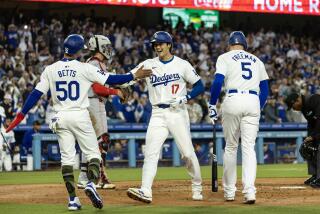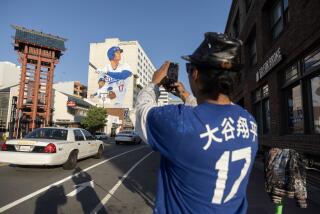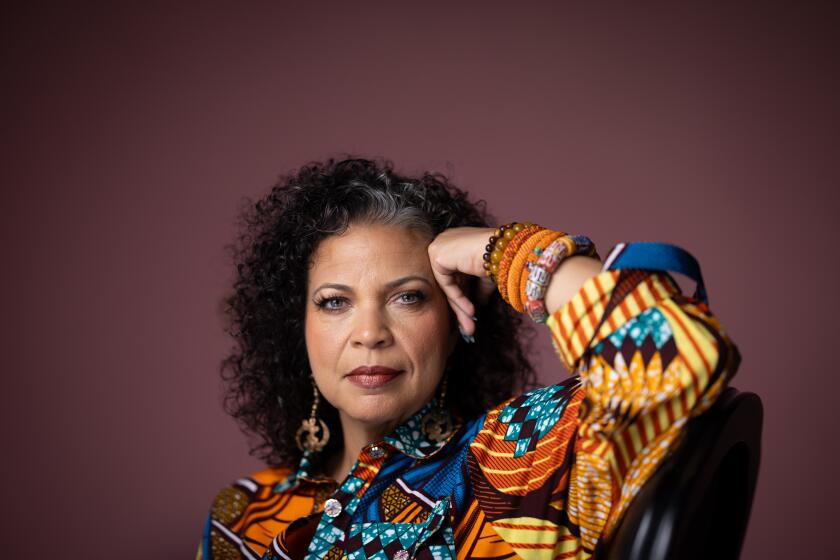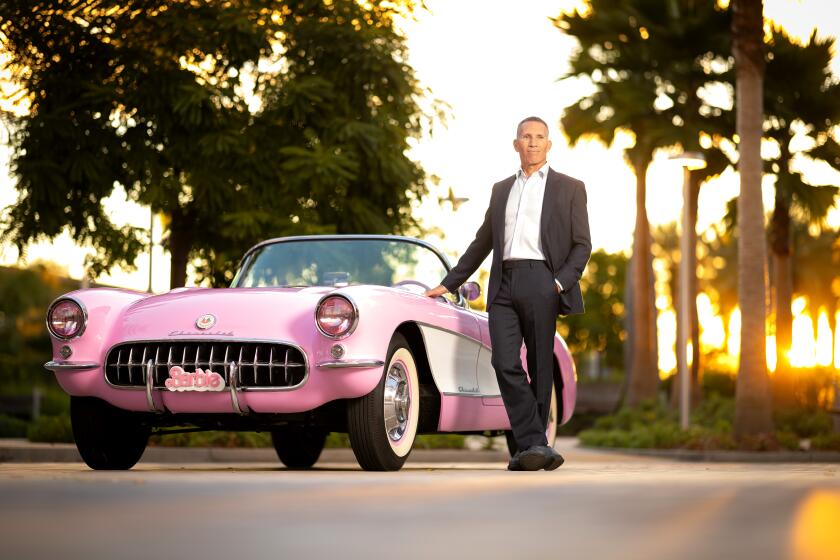
When federal prosecutors asserted in April that Shohei Ohtani didn’t place any wagers with an illegal bookmaker or knowingly pay off the debts of his former interpreter, the baseball world breathed a collective sigh of relief. The sport couldn’t afford for Ohtani to be embroiled in a gambling scandal.
Ohtani won’t change America the way Jackie Robinson did. He won’t transform the demographics of the Dodgers’ fan base as drastically as Fernando Valenzuela did.
What the two-way player will do is generate a record number of dollars and extend the reach of Major League Baseball.
Ohtani, who signed a 10-year, $700-million contract with the Dodgers last year, could be the single greatest economic force in the history of baseball. The power of the 29-year-old Ohtani was evident in how he transformed the Dodgers’ roster over the winter, and not just because he joined a lineup that already included other former most valuable players in Mookie Betts and Freddie Freeman.
Discover the changemakers who are shaping every cultural corner of Los Angeles. This week we bring you The Disruptors. They include Mattel’s miracle maker, a modern Babe Ruth, a vendor avenger and more. All are agitators looking to rewrite the rules of influence and governance. Come back each Sunday for another installment.
Ohtani, who won’t pitch this season because he’s recovering from a major elbow operation, allowed the Dodgers to trade for starting pitcher Tyler Glasnow and sign him to a five-year, $136.5-million extension. And the team signed Yoshinobu Yamamoto, yet another frontline starting pitcher, to a 12-year, $325-million contract.
More than a designated hitter, Ohtani is the organization’s in-house money-printing machine.
Once the most popular sport in the United States, baseball is now considered a regional sport. This dynamic explains why baseball players earn a fraction of what their contemporaries in basketball and football make in endorsements.
Ohtani is the exception to that rule. His marketability has as much to do with his country of origin, Japan, as his status as the No. 1 player in his sport. No other top-level player in the league is from a wealthy country in which baseball is the most popular sport. He is popular across Asia, even in South Korea, a place where there continues to be resentment over Japan’s 35-year occupation last century.
No other top-level player in the league is from a wealthy country in which baseball is the most popular sport.
Sportico reported that Ohtani made an estimated $40 million in endorsements last year, an amount more than any NFL player and in the neighborhood of such NBA stars as Giannis Antetokounmpo ($45 million) and Kevin Durant ($42 million).
The Dodgers will profit from his marketability, as Ohtani-related sponsorships could make the franchise more than $50 million annually.
That alone would give the Dodgers the financial flexibility necessary to bolster their roster. But Ohtani’s flex did not stop there. He agreed to defer $680 million of his $700-million contract at no interest. The Dodgers can now invest the deferred salary and collect the profits, essentially making Ohtani’s money work for them. One baseball agent speculated the Dodgers could make $1 billion by investing the deferrals through an asset management firm such as Guggenheim Partners, their parent company.
It’s no coincidence that after the Dodgers signed Ohtani, they were suddenly open to placing nine-figure wagers on the undersized Yamamoto and injury-prone Glasnow. Ohtani fundamentally altered the Dodgers, and perhaps the arc of his sport for the next decade.








